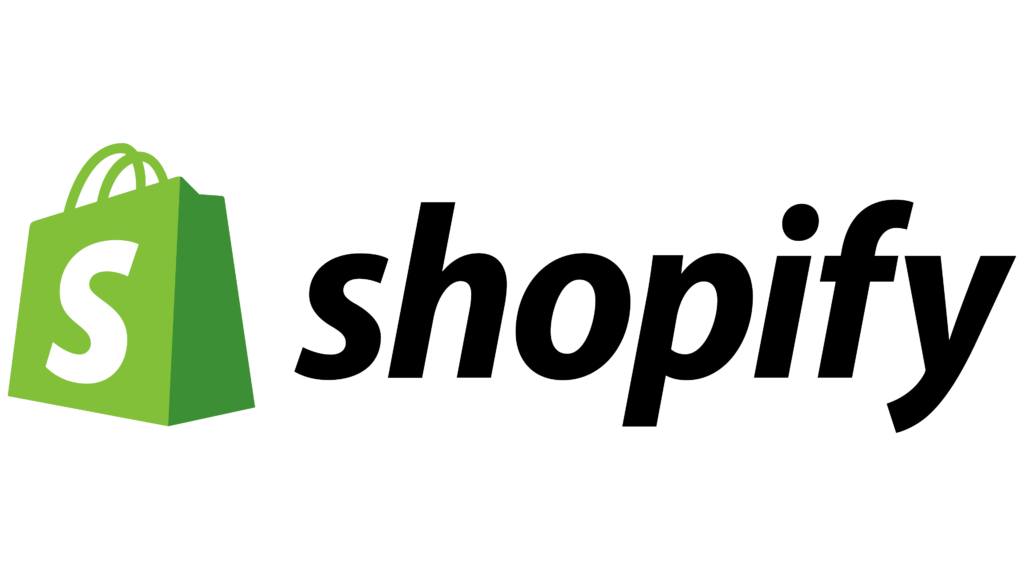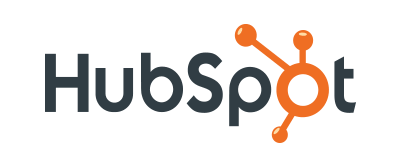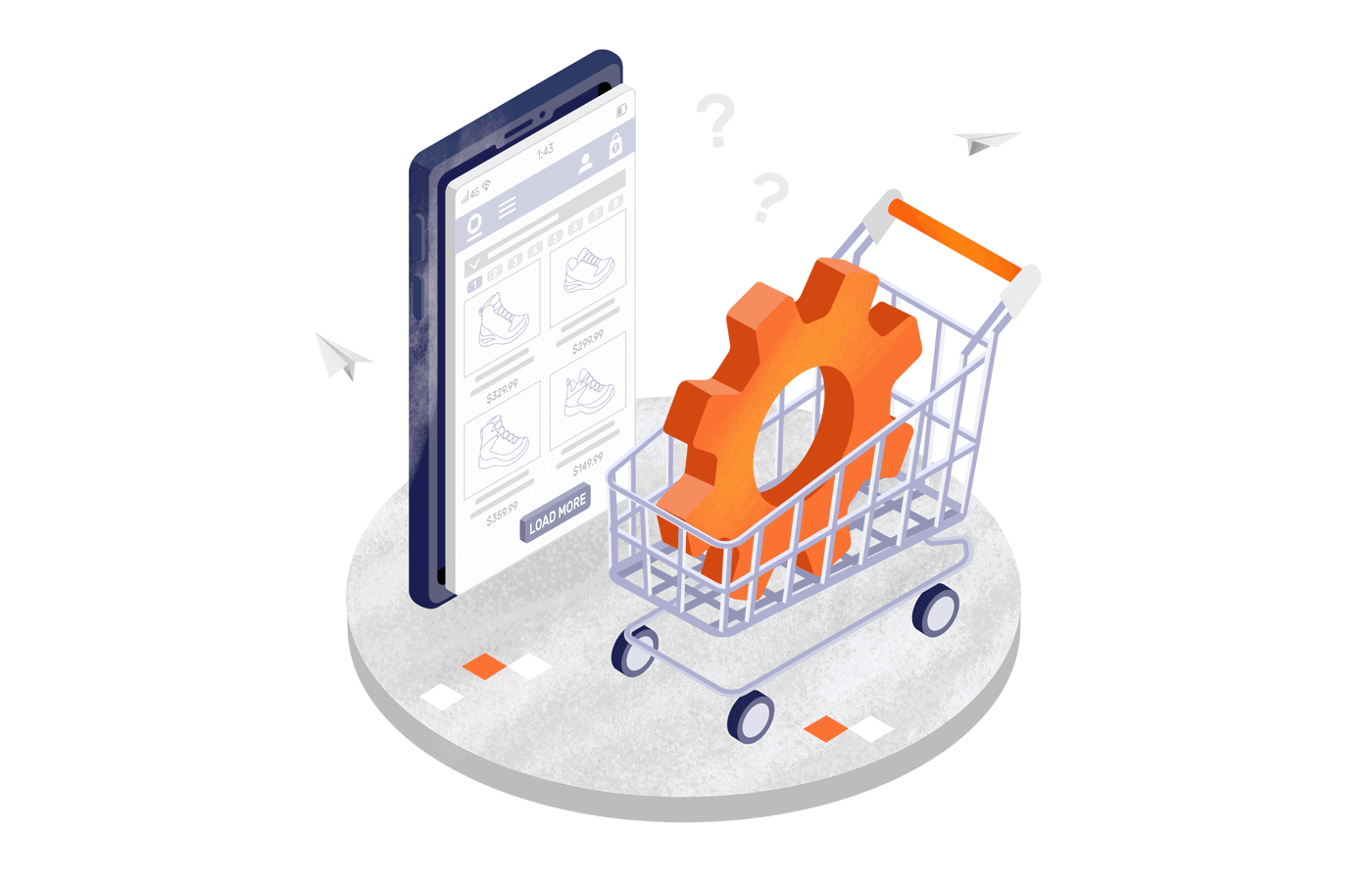Ecommerce sales in the US for 2022 surpassed $1 trillion for the first time ever.
While this ‘ecommerce revolution’ is a fact, what’s also true are real problems that ecommerce businesses, including the most successful ones, often struggle with.
Driving quality traffic, effective targeting for maximum conversions, poor metrics visibility, and a highly competitive marketplace are all factors that challenge ecommerce business operations daily.
In this guide, we unveil the top ecommerce marketing tools of 2023 that can help your ecommerce store or business leverage martech innovations to run their sales and online marketing processes better, leading to fewer missed opportunities, cost-effective customer acquisition, increased sales, and vastly improved ROI.
Why Are Ecommerce Marketing Tools Necessary?
Ecommerce marketing tools are a must for ecommerce businesses to stand out, market better, and sell more in this increasingly startup-eat-startup world.
The right ecommerce marketing tool can help your business with:
- Reduced customer acquisition costs;
- Improved scalability through automation;
- Boosted conversion rates;
- Faster product launches;
- Increased sales;
- Improved customer experience;
- Saving time, money, and manual resources;
- Better ROI while scaling;
- Data-backed, dynamic decision-making.
What’s not to like about being able to solve your marketing bottlenecks faster and better?
Especially given that even the most mediocre of ecommerce marketing tools can measurably change both the effectiveness and efficiency of your online advertising.
Our Recommendations for the Top Ecommerce Marketing Tools — Quick Preview
Take a sneak peek at our juiciest recommendations from the table below:
| Platform Name | Brief Description | Pricing |
| Sender | Email Marketing Automation Tool | Free forever plan includes 2,500 subscribers & 15,000 emails/mo + Unlimited popups, forms & email automation; Paid plans start from $8.33/mo for 2,500 contacts. |
| Shopify | Ecommerce Website Builder | Free 3-day, fully-featured trial; Paid plans start at $26/mo. |
| ClickUp | Ecommerce Marketing Planner | Free forever plan includes 100MB storage & unlimited tasks; Paid plan starts at $5 per member/mo, Including unlimited storage and more. |
| Hootsuite | Social Media Scheduling Solution | No free tier, only a 30-day trial; Paid plan starts from $99/mo and includes 1 user, 10 social accounts, unlimited posts, 1 shared inbox, and more. |
| Refersion | Affiliate and Influencers Software | No free tier, only a 14-day trial; Paid plan starts from $99/mo for a max of 50 monthly order conversions. |
| Hubspot | Ecommerce Inbound Marketing Platform | Free plan allows 1 active automation, up to 5 active email lists & max of 2,000 emails/ mo; Paid plans start from $45/mo for 1,000 contacts, 25 active email lists and a max of 5,000 emails/ mo. No HubSpot branding. |
| SEMrush | Content Marketing Management System | No free tier, only 30-day trial; Paid plans start from $99.95/mo. Includes 5 projects, 500 keywords tracking, 10,000 results per report, and more. |
| Eagle | Marketing Inspiration Collector | $29.95 for a lifetime license. With a 30-day free trial, no update fees forever. |
Now let’s take a look at each of these marketing platforms and take note of the best they bring to the table.
8 Must-Have Marketing Tools for Your Business
Ecommerce marketing tools can help make marketing an ecommerce store easier.
But having to choose one from hundreds, with each of them claiming superiority over the others, is anything but a cakewalk.
We have curated the following marketing platforms that we believe can make a huge difference to both the effectiveness and the efficiency of your ecom store.
Without further ado, let’s dive in.
1. Sender — Email Marketing Automation Tool
Sender is one of the leading all-in-one marketing automation tool designed to help ecommerce businesses create and send high-converting marketing campaigns with ease. It offers a rare blend of high performance, feature-richness, and affordability.
- Premade design templates;
- Drag-and-drop email builder;
- Email and SMS automation.

Borrow from the library of premade templates or create your own branded HTML designs from scratch using the no-code email design tool. Design laser-targeted email campaigns with powerful segmentation capabilities while still maintaining a high degree of ecommerce personalization.
Plan fully automated email & SMS workflows that respond on auto-pilot to specific user behavior, events, or event-specific dates.
Choose from pre-existing automation recipes such as welcome series, drip campaigns, and abandoned cart series, or build your own automation flows using Sender’s drag-and-drop automation builder in no time.
Sender’s Key Features
- Drag-and-drop email editor;
- No-code popup and form editor;
- Easy-to-use automation builder;
- Automation sequences such as welcome emails, abandoned cart, post-purchase, happy birthday, and more;
- Email & SMS broadcast capabilities;
- High deliverability through strict anti-spam and anti-affiliate policies.
Sender Pros & Cons
| Pros | Cons |
| Easy learning curve | No landing page builder (in progress) |
| Better deliverability due to anti-spam policies and high-quality infrastructure | Sender logo in the free forever plan |
| Unlimited email automation in the free forever plan |
Sender Plans & Pricing
| Free Forever plan | Standard plan (from $8/mo) | Pro plan (from $29) |
| 2,500 contacts | 2,500 contacts | 2,500 contacts |
| 15,000 emails/mo | 30,000 emails/mo | 60,000 emails/mo |
| Unlimited popups & forms | Unlimited popups & forms | Unlimited popups & forms |
| Unlimited email automation | Unlimited email automation | Unlimited email & SMS automation |
| SMS marketing | Animated countdown timers | |
| No ‘Sender’ branding | Survey & feedback blocks, and more! |
Sender is a versatile and cost-effective ecommerce marketing tool that supports businesses in every step of the customer journey. It enables businesses to efficiently attract, nurture, convert, and retain prospective customers.
By streamlining the entire customer lifecycle, Sender helps businesses to build stronger relationships with their customers and drive more sales.
2. Shopify — Ecommerce Website Builder
When it comes to ecommerce marketing platforms, it’s hard to leave out one that powers close to 6.5 million online stores across 175 countries.
Yes, Shopify is among the more popular solutions that online product businesses rely on to design, host, and run their stores.
- Drag-and-drop ecommerce site builder;
- Rich POS (Point of Sale) compatibility;
- 8,000+ themes, apps, and integrations.

Use Shopify’s easy-to-use, drag-and-drop WYSIWYG (What You See Is What You Get) website builder to create fully functional, high-converting store sites in no time with zero coding knowledge. What’s more, high-performance, secure hosting is included in all Shopify plans.
Shopify offers complete ecommerce management features, letting you add, market, and sell products, manage stock & inventory, process incoming payments, and manage both transactional and marketing communications easily from one powerful interface.
Add an unlimited number of products to your online store, provide personalized recommendations, customer store themes, and more while easily integrating into existing or latest point of sale (POS) systems with easy.
Shopify’s Key Features
Shopify is more than just another ecommerce hosting site. It is a complete living and breathing ecosystem that brings your ecommerce venture to life.
Its major features include:
- Drag-and-drop WYSIWYG website builder;
- Add unlimited products to the storefront;
- Wide range of free and paid store themes;
- Centralized inventory tracking;
- Integrated marketing features: Content marketing, SEO, Targeted ads, and Social media;
- Free tools including Logo maker, Business name generator, Slogan maker, QR code generator, and more;
- Comprehensive analytics & reporting.
Shopify’s Pros & Cons
| Pros | Cons |
| User-friendly, no-code store builder | Limited customizability & flexibility in design |
| Responsive, eye-catching templates | Higher transaction fees |
| Powerful apps ecosystem | Advanced features involve paid third-party apps |
Shopify Plans & Pricing
You can try Shopify, fully-featured, free for up to 3 days. After this 3-day free trial expires, you can choose from paid plans starting at $26/mo.
In conclusion, Shopify is a high-performance, hosted, all-in-one ecommerce ecosystem that enables businesses of all sizes to develop an online store with minimal effort.
Also read: 9 Best Ecommerce Hosting Sites in 2023
3. ClickUp — Ecommerce Marketing Planner
Not one of the typical ecommerce marketing tools, ClickUp is a versatile productivity management and planning platform that helps ecommerce stores streamline their marketing processes and campaigns through planning, scheduling, tracking, and collaborating better.
- Goals tracking;
- Time tracking;
- Documentation management.

Plan, schedule, and assign marketing campaign tasks while ensuring complete visibility across stakeholders, thereby ensuring on-time and with-quality deliverables every single time.
Create customizable, shareable dashboards to monitor the progress of your marketing campaigns while ensuring a steady eye on key performance metrics.
Save time and effort by deploying workflow automation to automate repetitive tasks and use task management to assign, prioritize and manage subtasks easily.
Use the CRM (Customer Relationship Management) feature to create custom views to track customer lifetime value, average deal sizes, and more. Lastly, integrate with other marketing tools for social media management, email marketing, and analytics, injecting data-driven insights into your marketing strategies.
ClickUp’s Key Features
- Workload, Milestones & Goals tracking and measurement;
- Time tracking, estimates, and reporting;
- Rich collaboration features, including screen recording;
- 35+ ClickApps to customize task management;
- Drag-and-drop form builder;
- Nested subtasks & checklists;
- Real-time reporting & dashboards.
ClickUp Pros & Cons
| Pros | Cons |
| Customization capabilities | Can be overwhelming to get started with |
| Prebuilt templates & automation | Limited free plan |
| Deep visibility into projects, tasks, time, and workloads | Occasional bugs |
ClickUp Plans & Pricing
| Free Forever plan | Paid plans (start at $5) |
| 100MB storage | Everything from the Free Forever plan |
| Unlimited tasks and members | Unlimited storage, integrations and dashboards |
| Collaborative docs, whiteboards, and kanban boards | Guests with permissions |
| Sprint management | Unlimited Gantt charts, custom fields |
| Time tracking | Teams, goals & portfolios, agile reporting |
| Calendar view | Email in ClickUp, form view |
To ensure profitability and sustainability, it is crucial to run your ecommerce venture with maximal efficiency. Using ecommerce marketing tools, such as ClickUp, is an excellent way to streamline your efforts by being able to track time, monitor tasks, and gain overall visibility into the productivity of your marketing campaigns.
4. Hootsuite — Social Media Scheduling Solution
Hootsuite is a social media management tool that helps ecommerce businesses to manage their social media presence more efficiently by scheduling and publishing content across multiple social media platforms, monitoring engagement, and tracking performance, all from one neat dashboard.
- Shared inbox conversations;
- Bulk social media scheduler;
- AI hashtag generator.

Hootsuite not only suggests the best times to post on social media, but its bulk social media scheduler also lets you plan hundreds of posts ahead of time.
Use unified inbox management to manage conversations across multiple social networks from one dashboard and respond quickly to followers. You can assign messages to team members or even set up automated message responses to answer the most common questions your prospects ask.
Use social listening to monitor social media conversations, keywords, and mentions related to your brand, competitors, or industry trends.
Benefit from Canva templates, Grammarly spellcheck, content discovery streams, and more to create on-brand, high-quality content that sells more.
Hootsuite’s Key Features
- Create and publish content across Facebook, Instagram, Twitter, and LinkedIn management from one dashboard;
- Social listening streams for mentions of specific keywords, your own or competitor brand names;
- Content ideas generator;
- In-built Grammarly spellcheck;
- Automated DM (Direct Message) replies;
- Paid advertising campaigns management;
- Reputation management.
Hootsuite Pros & Cons
| Pros | Cons |
| Automated social media posting across multiple platforms | Can be overwhelming to start |
| Faster replies using the unified inbox feature | More expensive than other social media platforms |
| Easy to learn and use | Little to no customer support for lower-tier plans |
Hootsuite Plans & Pricing
Hootsuite offers a free 30-day trial of paid plans.
| Professional plan ($99/mo) | Team plan ($249/mo) | Business plan ($739/mo) | Enterprise plan (custom price) |
| 1 user, 10 social accounts | 3 users, 20 social accounts | 5 users, 35 social accounts | From 5 users and 50 social accounts |
| Unlimited posts | Everything in Professional plan | Everything in Team plan | Everything in Business plan |
| Post scheduling | Roles & permissions | Approval workflows | Social ads management |
| Access to messages in one inbox | Assign posts to team members | Inbound/outbound tagging | Social ads analytics & reporting |
| Content & asset library | Employee advocacy | ||
| Customer support | Team productivity reporting |
5. Refersion — Affiliate and Influencers Software
Affiliate marketing and referrals are crucial for ecommerce businesses looking to expand their reach and drive sales.
Refersion is an all-in-one affiliate and referral marketing platform that enables businesses to manage their influencer and affiliate programs across multiple channels, including Amazon Marketplace and DTC channels powered by Shopify, BigCommerce, and WooCommerce.
- Integrates with Amazon Marketplace, Shopify, BigCommerce & WooCommerce;
- Custom commission structures per product;
- Free listing in Refersion’s marketplace.

Easily design and manage affiliate programs, track sales and commissions, and gain performance insights into your affiliate marketing campaigns.
Manage multiple partnerships with publishers, including networks, editorial and media sites, newsletters, blogs, and all types of influencers, from one easy-to-access interface.
Use affiliate discovery tools to find top-performing affiliates and publishers and use custom commission structures, automated payouts, and multiple payment options to build trusting and transparent relationships with them.
Refersion is a great choice for businesses looking to easily onboard and manage unlimited affiliates and track their performance with built-in reporting for all campaigns across brand ambassadors, influencers, and affiliate programs.
Refersion’s Key Features
- Enables affiliate, ambassador & influencer marketing partnerships;
- Track sales with referral links, coupon codes, emails, and product SKUs;
- Rich affiliate discovery network of over 3.6M premium publishers;
- Unlimited affiliates, campaigns, clicks, and brand partnerships;
- Tiered and incentive-based commission rates;
- Advanced commission structures by product or SKU;
- Offer tracking by unique coupon codes, emails, links & product SKU;
- 30+ turnkey marketing app integrations.
Refersion Pros & Cons
| Pros | Cons |
| Easy to set up and start using | Limited on-demand reporting |
| Powerful affiliate tracking and payout features | Occasionally glitchy and error-prone |
| Integrates with all major ecommerce platforms | No support for cross-device tracking |
Refersion Plans & Pricing
Refersion offers no free plans, only 14-day free trials of paid plans.
| Pro plan ($99/mo) | Business plan ($249/mo) | Enterprise plan (custom price) |
| Up to 50 monthly order conversions | Up to 200 monthly order conversions | Unlimited monthly order conversions |
| Amazon integration, Affiliate discovery & more |
Overall, Refersion is an excellent tool for ecommerce businesses looking to accelerate their affiliate and referral marketing efforts, reach new audiences, and drive sales.
6. Hubspot — Ecommerce Inbound Marketing Platform
More than just a software platform, HubSpot is truly a multi-functional, all-in-one business operating system that helps companies fulfill their marketing, sales, service, and operations requirements from one powerful portal.
- All-in-one platform including Emails, SMS, SEO, Socials, and more;
- Powerful marketing automation capabilities;
- No-code website builder.

HubSpot’s online form builder allows businesses to generate leads using custom conversion-ready forms or newsletter popups that are easy to set up on your website.
The user-friendly, drag-and-drop email builder helps create professional-looking email campaigns quickly. Additionally, with access to a template library, creating and sending emails to your customers is a breeze, even if you’ve never done this before.
Lastly, the landing page builder feature allows you to create and test beautiful landing pages that generate leads and look great on any device. At the same time, social media management helps prioritize social interactions for your brand.
HubSpot’s Key Features
- User-friendly landing page builder;
- Comprehensive CRM management & reporting;
- Paid ads management;
- Organic social media marketing management;
- SEO (Search Engine Optimization) management;
- Content hosting & management;
- Video hosting;
- Email marketing;
- ABM features.
HubSpot Pros & Cons
| Pros | Cons |
| Feature-rich all-in-one portal | Cost-prohibitive unless you’re an enterprise business |
| Rich resource library for training and guidance | Customization can be expensive, needs expert help |
| Good customer support | Can be overwhelming for those starting out |
HubSpot Plans & Pricing
HubSpot’s Marketing hub module offers the following plans.
| Free plan | Starter plan (starts at $45) | Pro plan (starts at $800) |
| 1 active automation | 1,000 contacts | 2,000 contacts |
| 5 active email lists | 25 active email lists | 100 active email lists |
| Max 2,000 emails per month | Email send limit: 5 times per list | Onboarding fee of $3000 is a must |
| Hubspot branding | No HubSpot branding | Email send limit: 10 times per list |
| Other marketing features with specific limitations | No HubSpot branding | |
| Social media management |
While HubSpot’s strength lies primarily in email marketing, it comes across as an all-around business software that ecommerce ventures could use to attract the right audience, convert visitors into customers, and run complete inbound marketing campaigns at scale.
7. Semrush — Content Marketing Management System
Semrush is a digital marketing platform focused on helping ecommerce businesses improve their online visibility and increase sales through Search Engine Optimization (SEO).
- Competitor SEO analysis;
- Powerful keyword research;
- Website rank tracking.

Using the Keyword Magic tool, you can generate thousands of keyword combinations from a single seed keyword and access a keyword toolbox containing over 24 billion keywords.
The Organic Research capability helps identify your competition’s most profitable keywords, optimize your own organic keywords, and win SERPs (Search Engine Ranking Pages) relevant to your target audience.
Backlink Analysis allows businesses to create their own backlink profile and develop strategic link-building campaigns to improve their online visibility further and drive more traffic to their website.
Also, by linking your Google Analytics and Google Search Console accounts, you can analyze all of your website’s data centrally.
Semrush’s Key Features
- PPC keyword research;
- SERP tracking;
- Backlinks analysis;
- Backlink audit;
- On-page SEO checker;
- Local SEO position tracking;
- Link building;
- Organic Traffic Insights;
- Competitor PR monitoring.
Semrush Pros & Cons
| Pros | Cons |
| In-depth keyword and competitor analysis | Expensive |
| Generous reporting limits | UI & UX is non-intuitive |
| One of the largest keyword databases (over 24 billion keywords) | Data accuracy takes a hit sometimes |
Semrush Plans & Pricing
Semrush doesn’t offer a free tier. The best you can get is a 30-day fully functional trial of any of the paid plans below:
| Pro plan ($99.95/mo) | Guru ($191/mo) | Business ($375/mo) |
| 5 projects | 15 projects | 40 projects |
| 500 keywords to track | 1,500 keywords to track | 5,000 keywords to track |
| 10,000 results per report | 30,000 results per report | 50,000 results per report |
| SEO, social, and PPC tools | All Pro features plus: Content Marketing toolkit, historical data, multi-location and device tracking, Lookeder Studio integration, and more. | All Guru features plus: Share of Voice, extended limits, API access, pLA analytics, free migration from third-party tools, and more. |
| Competitor analysis, keyword research, website audit, advertising and social media tools, and more. |
As an ecommerce business, whether you’re looking to conduct keyword research, analyze competitor strategies, or track your own website’s performance, Semrush offers a comprehensive suite of ecommerce marketing tools to help you achieve your goals.
8. Eagle — Marketing Inspiration Collector
Eagle is the ultimate resource collection tool for marketers and designers. With its sleek interface and powerful features, Eagle simplifies the process of gathering and organizing marketing and design resources.
- Easy organization of marketing and design resources
- Powerful search functionality for quick access to saved materials
- Wide range of supported file types, including images, videos, and fonts

Whether it’s images, videos, fonts, bookmarks, or inspiration, Eagle has got you covered. Its intuitive bookmarking system and robust search capabilities make finding and saving resources a breeze. Stay ahead of the competition and unleash your creativity with Eagle!
Eagle’s Key Features
- Easy bookmarking and organization of marketing and design resources;
- Powerful search functionality for quick access to saved materials;
- Wide range of supported file types, including images, videos, and fonts;
- Intuitive interface for effortless navigation and efficient workflow;
- Customizable tags and folders for personalized resource management.
Eagle’s Pros & Cons
| Pros | Cons |
| Sleek interface | No mobile app at this moment |
| Powerful search filter | May take up storage |
| One-time payment |
Eagle Plans & Pricing
Enjoy working with Eagle for a 30-day free trial, fully-featured. Then, you can get a license for a lifetime at $29.95, with no subscriptions or hidden update fees. Don’t miss this opportunity to revolutionize your business with Eagle, the centralized hub for marketing and design materials.
Free to Paid: The Best Ecommerce Marketing Tools for Your Business
Choosing marketing tools for your business is difficult. Especially when they come in all shapes, colors, and sizes like the ones we just reviewed:
- Sender — Email Marketing Automation Tool;
- Shopify — Ecommerce website Builder;
- ClickUp — Ecommerce marketing Planner;
- Hootsuite — Social Media Scheduling Solution;
- Refersion — Affiliate and Influencers Software;
- HubSpot — Ecommerce inbound marketing platform;
- Semrush — Content marketing management system;
- Eagle — Marketing Inspiration Collector.
Most of these ecommerce marketing tools come with mutually exclusive features. For example, Semrush is hard-focused on SEO, while Sender stands out for its email and SMS campaigns.
Therefore it is obvious that you will likely choose more than one platform depending on your ecommerce business’s growth challenges and marketing strategy mix. Here’s to more profitable and high-ROI marketing campaigns in 2023!
Also read:
- 7 Best Email Marketing Software for Ecommerce
- 11 Best Marketing Agency for Ecommerce Businesses
- SMS Marketing for Ecommerce: Strategies, Templates
- 16 Best Marketing Automation Tools (Free & Paid Software)
Author Bio
Santosh Balakrishnan is a full-time Copywriter and Growth Marketer who loves writing about all things digital marketing. Whether he’s crafting the perfect email campaign or deep in meditation visualizing world peace, you know he’s got his eye on the prize – and it’s always growth.

